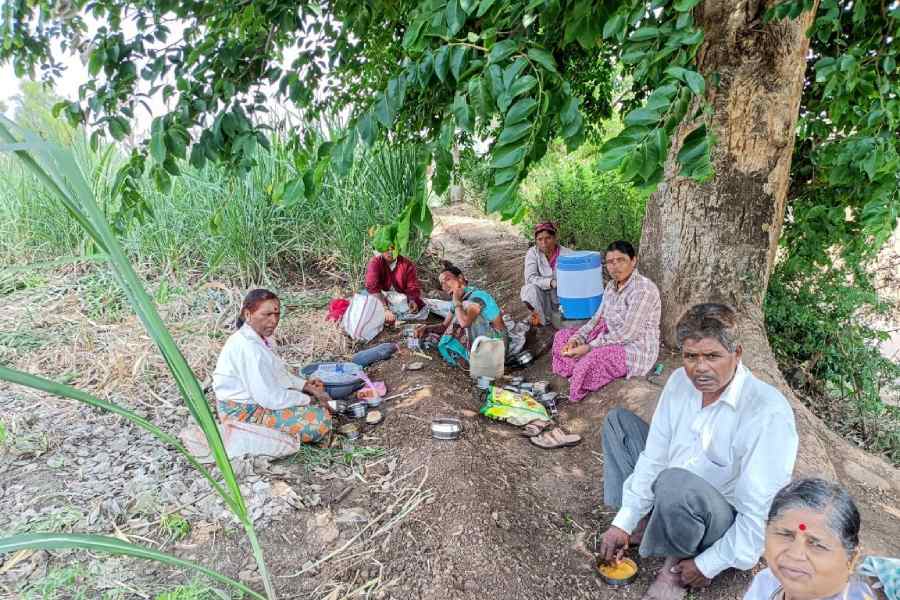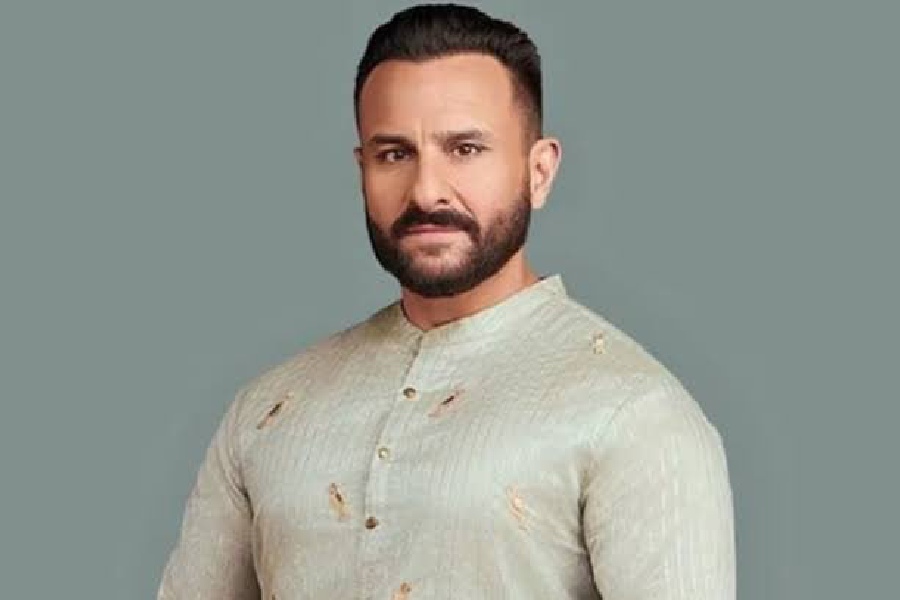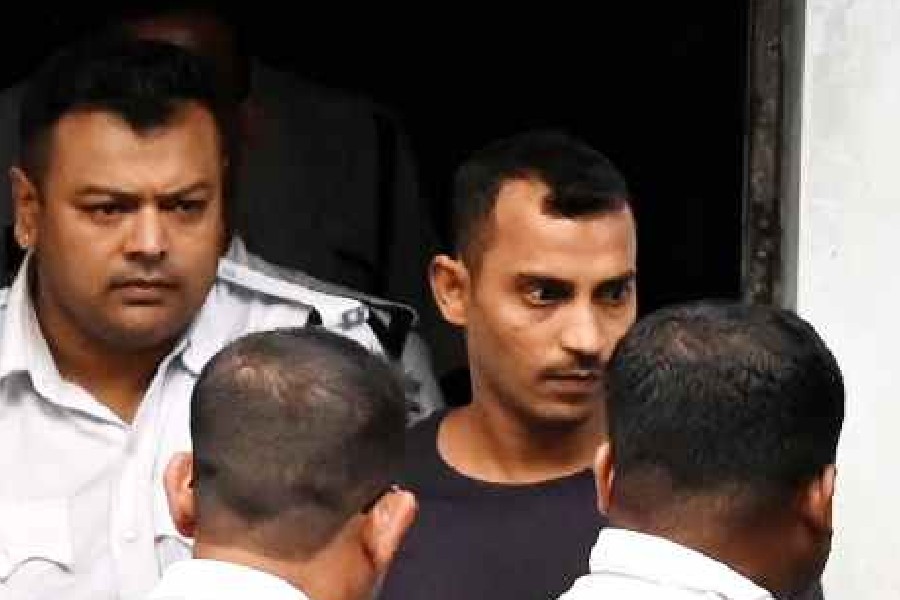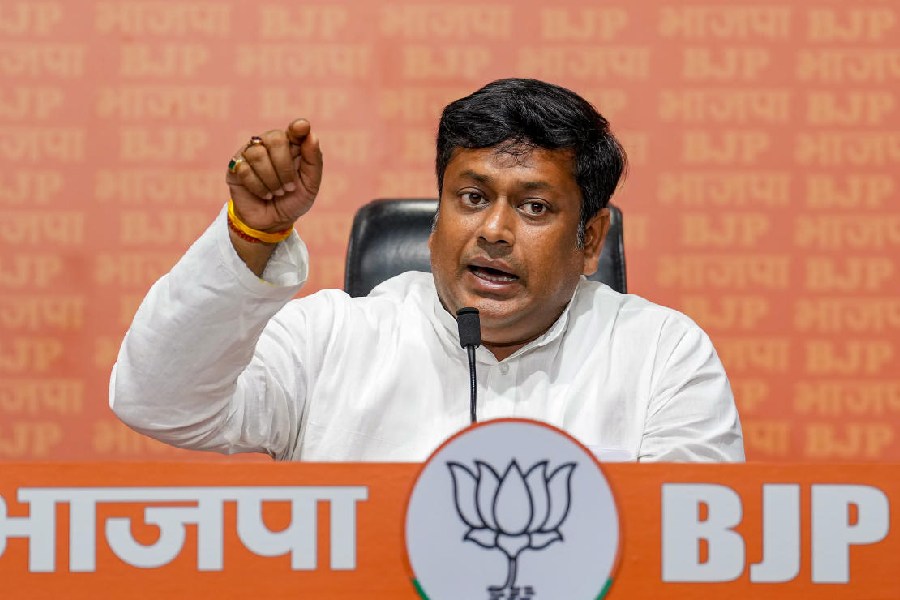Ganesh Bankar says Prime Minister Narendra Modi's government is indirectly taking away from farmers more than three times the money it gives them as annual dole.
He has the maths at his fingertips.
"Panth Pradhan" — as the farmer from Lasurne Jankshan village in Pune district describes Modi in Marathi — "is giving ₹6,000 annually," he says.
“I spend nearly ₹1.5 lakh a year to buy fertilisers, pesticides, seeds and other essentials for farming. On these products, I pay 18 per cent GST.”
At 18 per cent, the GST component of a sum of ₹1.5 lakh comes to more than ₹22,800 — nearly four times the ₹6,000 given by the Centre.
“Panth Pradhan Modi ne diya 6,000 aur le liya 22,000,” Bankar says.
Reminded that the Maharashtra government has been giving small and marginal farmers an additional ₹6,000, Bankar acknowledges receiving it but argues that the deficit still remains large.
He says the prices of DAP (di-ammonium phosphate), of which he uses around 100 bags of 50kg each in a year, have increased up to threefold in the last five years.
“A 50kg DAP bag costs between ₹1,100 and ₹1,500. It used to cost around ₹500 five years ago,” he says. “GST should be waived for farmers.”
Srikant Kalbhor, a farmer from Ramkrishna Nagar village in Satara district, some 200km away, echoes Bankar.
“What has Modi done for farmers?” he asks, flagging the steep hike in input costs and the low returns from farming.
He dismisses the central and state governments’ “support money” as “no support at all”.
In BJP parlance, farmers like Bankar and Kalbhor count as members of the “labharthi varg” or beneficiary class. The term refers to what the party considers a largely committed block of Modi voters who are grateful for the benefits received from the central government’s welfare schemes.
Apart from the ₹6,000 annual support for farmers, given in three instalments under the PM Kisan Samman Nidhi, the other benefits touted by the BJP include the free rations to 80 crore poor Indians and the housing, toilet and free LPG connection schemes.
The “labharthis” of these schemes are believed to have powered the BJP’s electoral domination in the heartland states. But in the sugarcane belt of western Maharashtra, the farmers seem largely unimpressed by the dole.
Large swathes of western Maharashtra are reeling under a drought-like situation, which has led to farm distress. Many farmers complain they can’t even recover the input costs.
“I grew tomatoes on my half-acre plot, spending around ₹40,000. The selling price did not meet my input cost,” Kalbhor said.
Aware that the farmer community is a formidable vote bank, the Eknath Shinde-led Mahayuti government had last year announced an additional annual dole of ₹6,000 for about 1 crore small and marginal farmers in the state.
To farmer Prashant Jadhav of Kondwe village in Satara district, the sum seems like a mockery. “The money covers our mobile recharge bills and provides for our daily snacks and tea,” he scoffs.
The Modi government had introduced the ₹6,000 central dole ahead of the 2019 Lok Sabha polls. It was initially meant for small and marginal farmers with landholdings of up to 2 hectares, but was later expanded to cover more farmers.
But the exclusion criteria — the most significant of them being that no member in the family should be an income-tax payer — has left out many households, generating resentment.
“My son works in a private firm in Pune and pays income tax; so I got excluded,” Jadhav says.
A few kilometres away, off the Pune-Bengaluru expressway in Khorad, retired army jawan Panduranga Jadhav has taken a break from work to eat lunch with his family under the shade of a tree in his sugarcane field. “Modi has been good for the country, for the country’s security. He has also worked for the farmers but he needs to do more,” he says.
Another farmer from the village underlines that Panduranga receives a hefty army pension and may not therefore feel the pain of the other farmers.
Satara votes on May 7, and Pune on May 13










